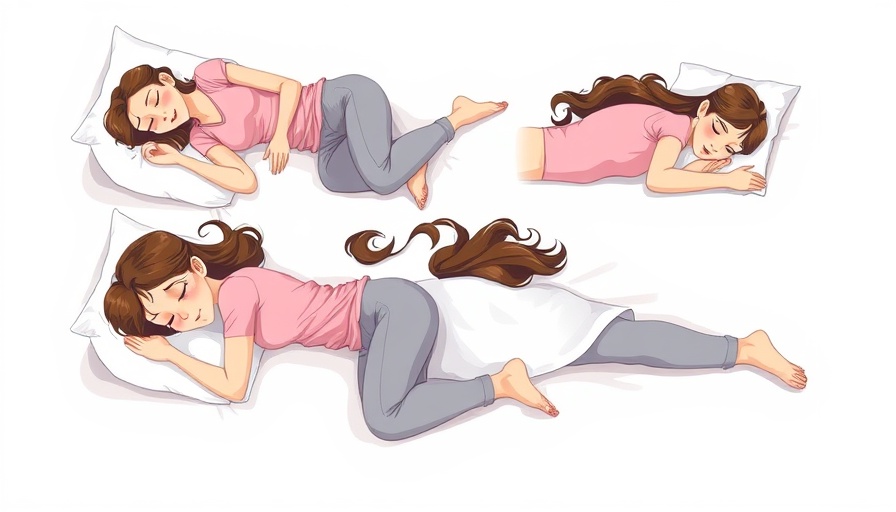
Unveiling the Secrets of Sleep Positions and What They Mean for You
Recent studies have unearthed fascinating insights linking sleep positions to various aspects of our personality and even health indicators. According to a study commissioned by the Better Sleep Council (BSC), our sleeping habits could unveil crucial information about our education level, health status, and even our age. For instance, those boasting higher education levels, like graduate school, tend to avoid the Fetal position—the most common sleeping posture among Americans, embraced by approximately 47% of sleepers.
An Age-Related Shift in Sleep Preferences
Interestingly, the research reveals age-related preferences in how we slumber. As generations shift, Millennials and Gen Xers gravitate toward the Freefall position, characterized by arms and legs outstretched, in contrast to Baby Boomers who predominantly stick with traditional sleeping styles. Understanding these generational differences could aid individuals in recognizing potential health trends related to sleep quality.
Do Sleep Positions Affect Health?
While comfort often dictates our sleep styles, the implications on sleep quality cannot be overlooked. For example, individuals who favor the Log position—a straight body alignment with arms down—report a more restful sleep than those curled up in the Fetal position. It's worth noting that specific positions such as the Starfish or Log may facilitate sleepwalking, revealing deeper layers of how sleep habits can affect our night-to-night experiences.
Introspection Through Sleep Positions
The study goes beyond mere preference; it connects sleep positions to personality traits and self-perceptions. Log sleepers indicate a healthy self-view while displaying a tendency to ensure their mattresses are comfortable. Fascinatingly, the Freefall position appears to repel introverts, hinting at a psychological dimension to how we choose to sleep. Additionally, a startling gender gap emerges—in the Fetal position, women are more likely to curl up compared to 39% of men preferring this stance. What do these preferences reveal about societal expectations and personal comfort?
Expert Tips for Better Sleep Positions
Terry Cralle, a BSC-certified sleep educator, shares valuable insights on optimizing sleep based on your position:
- Back sleepers (Soldier or Starfish): If you face back pain, consider placing a pillow under your knees to maintain spinal alignment.
- Stomach sleepers (Freefall): Straining on your lower back is common in this position; using a soft pillow can ease neck stiffness.
- Side sleepers (Log, Yearner, Fetal): Opting for side sleeping is highly recommended by sleep specialists as it promotes uninterrupted rest.
Tying It Together: The Impact of Sleep Positions on Daily Life
Awareness of our sleep positions invites rich conversations about personal wellness. With implications on comfort, health perceptions, and even personality insights, embracing knowledge about our sleeping habits is vital. Recognizing the influence of position on sleep quality may guide individuals toward healthier choices and improvements in their daily wellness regimens.
Final Thoughts
As our understanding of the correlations between sleep and overall health deepens, it becomes clear that taking charge of our sleep habits can be transformative. Whether you adjust your mattress, redefine your sleeping posture, or explore mindfulness practices, the pathway to better sleep is rich with opportunity. Reflect on your sleep preferences and commit to a healthier lifestyle by making informed choices about your nightly routines.
To tap into holistic wellness resources and enrich your well-being journey, explore our collection of health tips aimed at nurturing daily wellness routines, from natural sleep aids to stress relief strategies. Your journey to vibrant living starts with good sleep!
 Add Element
Add Element  Add Row
Add Row 



Write A Comment